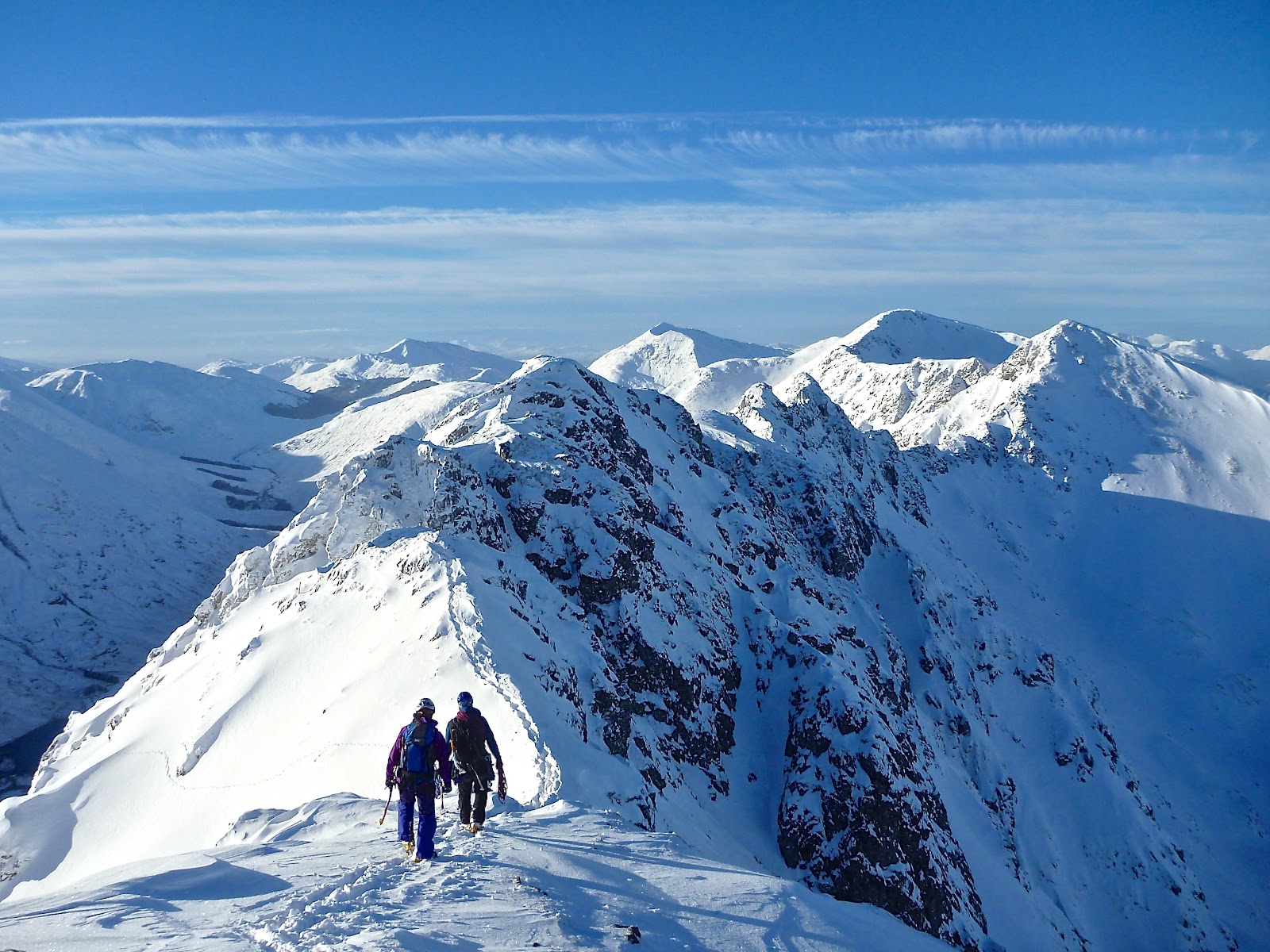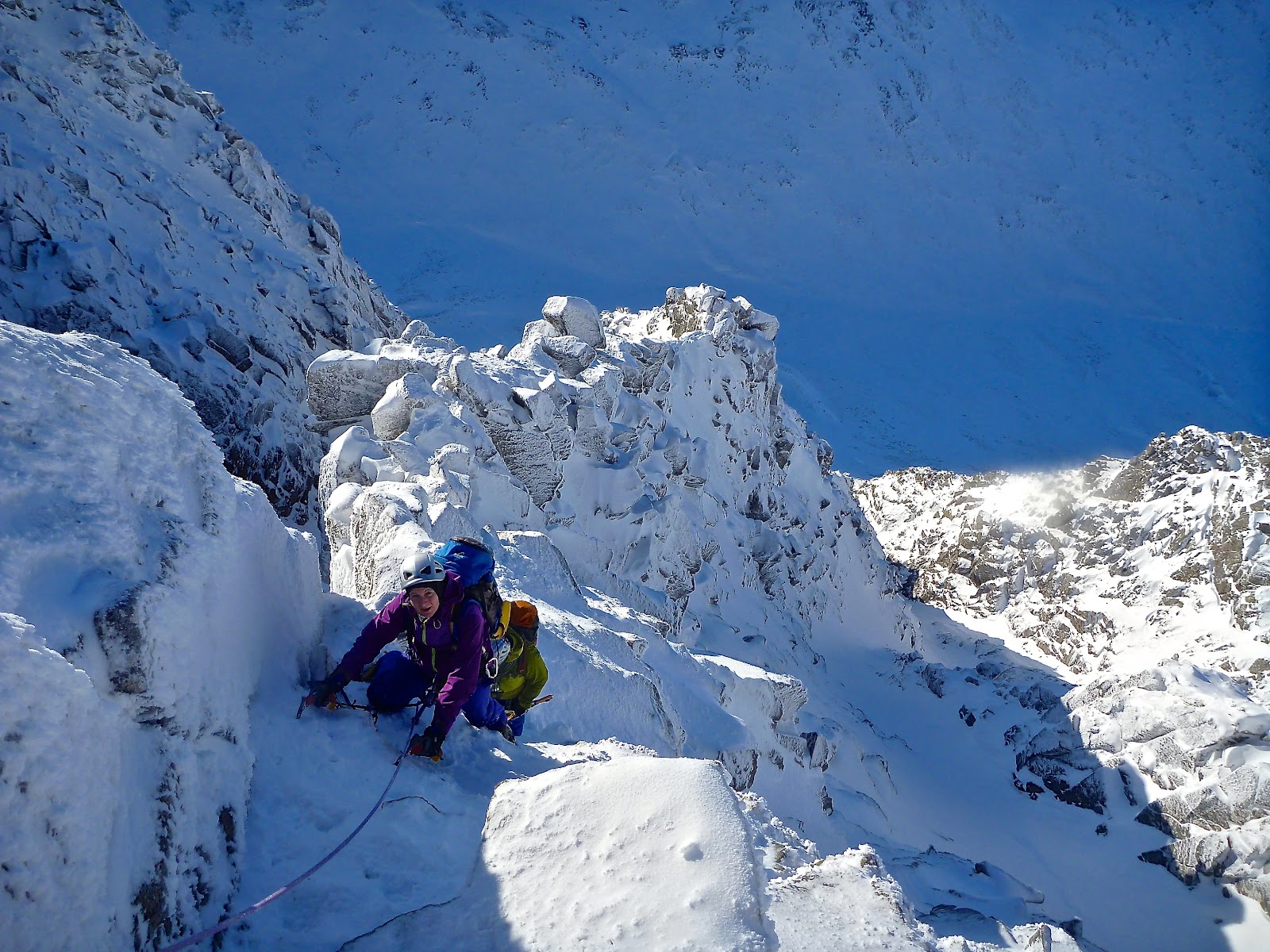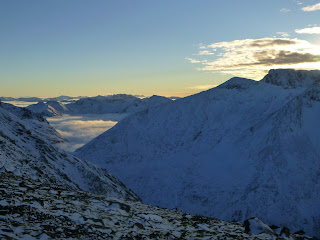I don't know how many times I've climbed Pinnacle Ridge at Polldubh. It's a classic solo for some personal exercise, a fun route I guide a few times a year and, as the closest route to the road one I teach on every week or so in the summer.
So why is my ankle wobbling like that on the wee smear and how come I can't find the piece of gear for my second runner without looking for it?
The answer is that I haven't been climbing for 3 months and outdoor Trad rock climbing for 6 months owing to the pandemic. I normally have an enforced layoff the rock over winter. Lets face it the Scottish rock season is done by the end of October at the absolute latest and (other than the odd freak winter like Feb 2019) the rock shoes only come out for indoor walls until some point in March. I do get the odd overseas rock trip to help feed the rat (digression November in the Ameln Valley in Morocco was amazing last year- highly recommended when we can travel again) and, crucially my ropework and protection skills are getting a thorough work out all winter long... usually.
So 2019-2020. My last rock route was a day of new routing on 26 November 2019. My last day at the wall was 3 March 2020 and my last winter route was 20 March 2020.
So over 10 weeks later setting off up a pitch on the 3rd of June 2020 was probably breaking the longest running period of no climbing in.... 30 years!
"Skill Fade" is defined as: "the decay of ability or adeptness over a period of non-use". Its a fairly well understood concept in the Medical, Military and Aviation worlds and is often noted after a break from work due to maternity or other issues. Its when you get a little rusty from lack of practise and some research showed that soldiers lost the experienced the greatest skill fade in the first 2 months.
How well you know something, what the 'something' is, how you learnt it, how recently etc. are all other factors that will contribute to how much skill fade you experience.
I knew there was the strong potential for some skill fade in my climbing so what can I do about it?
- Keep it easy. Build up the difficulty again slowly. Harder Grades, unknown routes, dirty routes, poor weather, pushy partners etc. can all make things harder. So control the variables and make life easy for yourself so you have the space to focus and return to 'former glory'.

- Immerse yourself in it again. Talk about climbing, read about climbing, watch videos of climbing. Research from the medical world showed that Doctors able to talk about work issues and procedures lost their skill at a slower rate than those who lacked those opportunities.
- Use checklists and mantras. Now would be a really easy time to forget something you have done as second nature in the past... especially if you were 'unconsciously competent' or did things without thinking about them before. Build habits and ways of checking them. What belay building nemonic did you use when you were learning? "Check or Deck" sounds a bit twee but the importance of both buddy checks and double checking (knots, anchors, krabs done up etc.) is hard to overstate.
- On the same theme climbing mindfully; staying aware of what you are doing and focussing on that rather than 'what ifs' or thinking to far ahead too soon at the expense of your current performance may help reduce errors.

- Mileage. Getting out plenty, moving lots, placing lots of gear, building lots of belays and doing all of that with the other 4 points above will help.
For example. My first day out was 10 pitches of Severe climbing, well within my grade, on a perfect weather day, with 2 friends of a similar mindset all routes well known to me. We'd all agreed the purpose of the day and were happy to have a relaxed day out reconnecting with each other (socially distanced of course) and the rock.
I think it would have been amusing to video my first pitch and watch the process. "That hold doesn't feel as good as usual". "Where is that No.5 wire?" "This all feels hard!"
That last is quite important. If you aren't expecting it the realisation that things aren't going as well as you expected them to can have a negative effect on your mental state. That can become the start of a 'spiral of doom' where you realise you aren't operating as well as you were, which makes you worried, which negatively effects your performance further, which makes you more worried etc.etc. Just knowing that skill fade is 'a thing' and taking steps to manage it in advance can prevent this negative feedback loop, keep you safer and help you get back to where you were sooner.
As its not just personal climbing I'm thinking about but work too my kids have been taken climbing to help me re-perfect my tangle free ropework with 2 students and in idle moments on my daily exercise I've been thinking through teaching progressions at stances I know well mentally for different types of students.
I know. I don't get out much- but as lockdown eases on it I'll be working on it!
Thanks to Paul smith for inout and ideas on this piece.



















